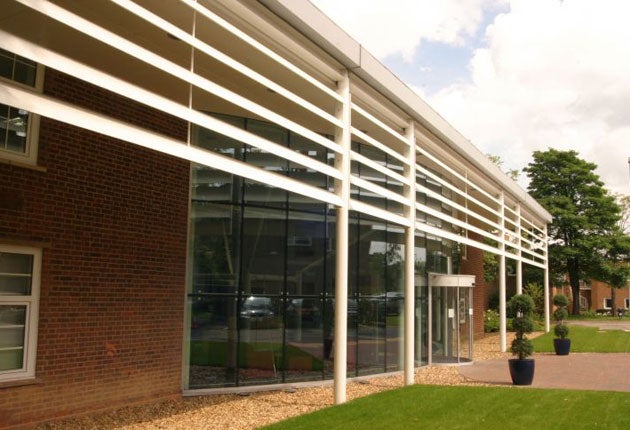Cranfield School of Management

History: Management has been part of Cranfield University since the Fifties. Founded on an old RAF site as the first postgraduate college of aeronautics, when it decided its students needed management training. It grew out of industrial need, not ivory towers. The school was formally established in 1967, making it one of the three oldest business schools in the UK.
Address: Modern facilities in a Bedfordshire countryside location. Accessible by road, rail and possibly aircraft – the airfield the college grew up around is still in use.
Ambience: Flat as far as the eye can see. Those in charge say this fosters intense learning and a strong community spirit, which adds to what they call the "Cranfield experience", born of the blend of high-flying students, accessible staff, interactive teaching and cutting-edge research.
Who's the boss? Professor Frank Horwitz, who joined the school in April this year.
Prospectus: +44 (0)1234 754 386; request a prospectus from here.
WHAT YOU NEED TO KNOW
Easy to get into? Applicants need three years' work experience and a degree or equivalent. The also need to pass an interview and achieve a GMAT score of 660 or take special Cranfield tests.
Vital statistics: A top business school with a strong practical bent, its MBA dates to 1964. The school offers a two-year executive MBA programme (part-time and modular) as well as a wide range of Masters, an executive doctorate (DBA) and a PhD. Cranfield also offers a unique MBA in defence, designed for professionals in the sector. Cranfield is one of a small group of schools worldwide to hold the triple accreditation of: AACSB, EQUIS and AMBA.
Added value: Claims to have the most contact hours of any UK business school, fitting into four terms what others cover in two years. Students choose integrated themes based around leadership, innovation and entrepreneurship.
Cost: The average costs for a term works out as £3,000 for an MSc, and the University charges £35, 000 for a MBA.
Return on investment: On average, MBAs earn a 30 per cent salary increase on graduation.
THE FUN STUFF
Glittering alumni: Charlie Mayfield, chairman of the John Lewis Partnership; Karan Bilimoria, CEO, Cobra Beer Ltd; Michael Wemms, chairman, House of Fraser plc; Kate Avery, group director, Legal & General; Crispin Blunt, MP.
International connections: More than two-thirds of full-time students come from abroad. The school organises formal exchanges with other top institutions in Europe, Australia, Singapore, China, Latin America and South Africa.
Student profile: The average age on Cranfield's full-time MBA is 31 or 35 on the part-time and modular MBAs. Male-to-female ratio is 4:1.
Join our commenting forum
Join thought-provoking conversations, follow other Independent readers and see their replies
Comments
Bookmark popover
Removed from bookmarks